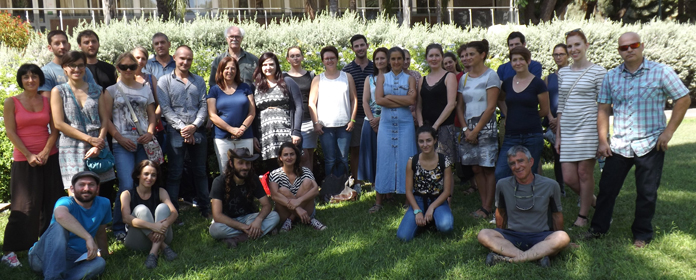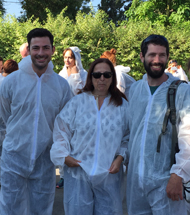Acarologist Mariló Moraza participates in a course in Israel
The professor of department of Environmental Biology is part of the team professor in an international course dealing with the mite that affects chicken farms.


During one week, the professor and researcher of department of Environmental Biology, Mariló Moraza, has participated in a training School graduate 'Molecular and Morphological Identification of Mites Associated with the network PoultryMite', which took place at campus of Rehovot, R.H. Smith Faculty of Agriculture, Food and Environment, at the Hebrew University of Jerusalem. One of the objectives of this course was to learn about the Dermanyssus gallinae mite, which wreaks havoc on chicken farms in much of the world.
The attendees were students and professionals from the European Union and Israel itself. Specifically, they came from Albania, Belgium, Croatia, Spain, France, Greece, Holland, Italy, Macedonia, Poland, Portugal, United Kingdom, Serbia and Slovenia. In addition to the theoretical part, the course included the visit to two farms affected by this mite: "The reason for creating this training school is because of the serious problems caused by the mite in laying hen farms. This mite feeds on their blood and generates skin lesions and great stress, causing a decrease in laying and even their death", explains the acarologist.
She adds that the participating students were experts in exotic birds, wildlife conservation, Microbiology and Parasitology, molecular biology, veterinary medicine, integrated pest management, biological control, mite and spider mite taxonomy and quarantine services. "In the course," says Professor Moraza, "they sought to know the parasitic mite to be able to identify it and know what its environment is like, become familiar with the importance of integrating the tools of morphological and molecular identification, etc.".
"Knowing their habitat well can facilitate the search for other potential predatory mites of Dermanyssus and, in this way, deal in an integrated way with a problem with great economic implications", emphasizes the researcher of the School of Sciences of the University of Navarra.
